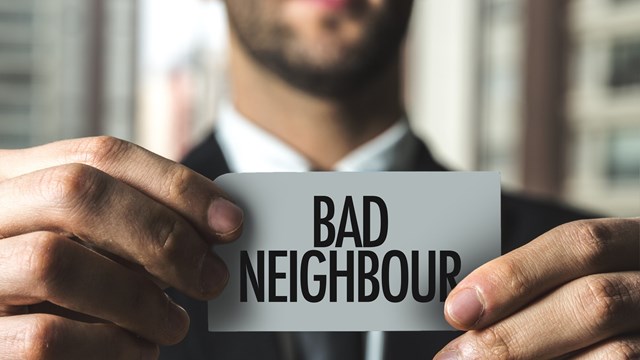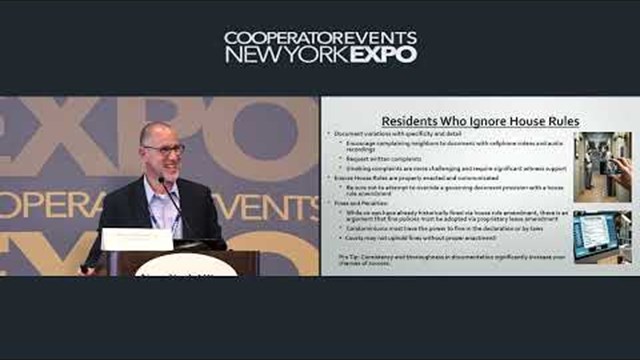A common phrase heard in many board rooms is that the board is protected under the law by the “business judgment rule.” This legal doctrine provides a judicial deference to a board’s decision if that decision is made in good faith and within the scope of the board’s authority. The general premise of the rule is that it is not the task of the judiciary to become a member of a co-op board and second-guess their decisions. However, it is the task of the courts to ensure that boards have acted properly and within the scope of their authority. We will review a recent decision revisiting this doctrine in a case involving a board’s attempts to terminate a shareholder’s stock and lease based on the shareholder’s “objectionable conduct.”
Before we review this and other recent cases decided by the Appellate Term of the Supreme Court, it is helpful to look back briefly at the leading case in this area of the law; 40 West 67th Street Corp. v. Pullman, 22 Ill.100 N.Y.2d 147, 760 N.Y.S.2d 745, 790 N.E.2d 1174 (2003) a case that was decided by the New York State Court of Appeals in 2003. In that case, defendant David Pullman was a shareholder at 40 West 67th Street Corp. who engaged in range of harassing activities, including accusing his upstairs neighbors - who did not own a television - of playing their TV too loudly, operating a noisy illegal bookbinding business, and storing toxic chemicals in their apartment. He had a physical altercation with another shareholder, and afterward sent out a building-wide memo referring to this shareholder as a “psychopath in our midst.”
The board took swift and appropriate action, holding a special meeting of all shareholders as required by the co-op’s proprietary lease, and obtained a supermajority vote to terminate Pullman’s stock and lease based on his objectionable conduct. The board brought suit for ejectment and a declaration terminating Pullman’s stock and lease, and were successful. The Court of Appeals gave deference to the decision of the board under the Business Judgement Rule, noting that the board conscientiously followed the proper procedures under their organizational documents, and acted within their authority. The matter was appealed all the way to the Court of Appeals and was sustained, providing a landmark decision on this issue for generations.
It is with this background that we can review a recent case that invokes the Pullman decision. In 800 Grand Concourse Owners v. Thompson, 2021 N.Y. Misc. LEXIS 3721, 2021 N.Y. Slip Op. 50602(U) (App. Term 1st Dep’t June 25, 2021), the co-op board voted to terminate a shareholder’s stock and lease due to the shareholder bringing a series of multiple frivolous and duplicative lawsuits against the board and its members. This resulted in the board incurring considerable expense and the loss of insurance coverage.
As a result, the board voted to terminate the shareholder’s stock and lease on the basis of objectionable conduct. The Court specifically noted that the board followed proper procedures, and had acted in good faith within the scope of their authority and in the best interests of the other shareholders. In addition, the Court noted that the shareholder was provided multiple opportunities to be heard, to defend and to abate the objectionable conduct. In light of all this, the Court found that the board’s decision to terminate the shareholder’s stock and lease was protected by the Business Judgment Rule, and deferred to the board’s finding and decision.
There are now numerous cases citing the Pullman finding which gives a co-op board clear guidance on how to properly handle a shareholder who is acting objectionably. These cases further stress the importance of the board acting in good faith, within their authority, strictly following the procedures as outlined in the proprietary lease, and giving the offending shareholder the opportunity to be heard. If these guidelines are followed, the board should enjoy the Court’s deference to their decision under the longstanding Business Judgment Rule.
Geoffrey Mazel is a founding partner with Hakin & Mazel PLLC, a law firm with offices in Manhattan and Great Neck, New York. His practice is devoted to real estate law, with extensive experience in cooperative and condominium law, litigation, and sales and acquisitions. Mr. Mazel counsels several dozen Cooperative and Condominium Boards of Directors/Managers, encompassing over 10,000 units.










Leave a Comment